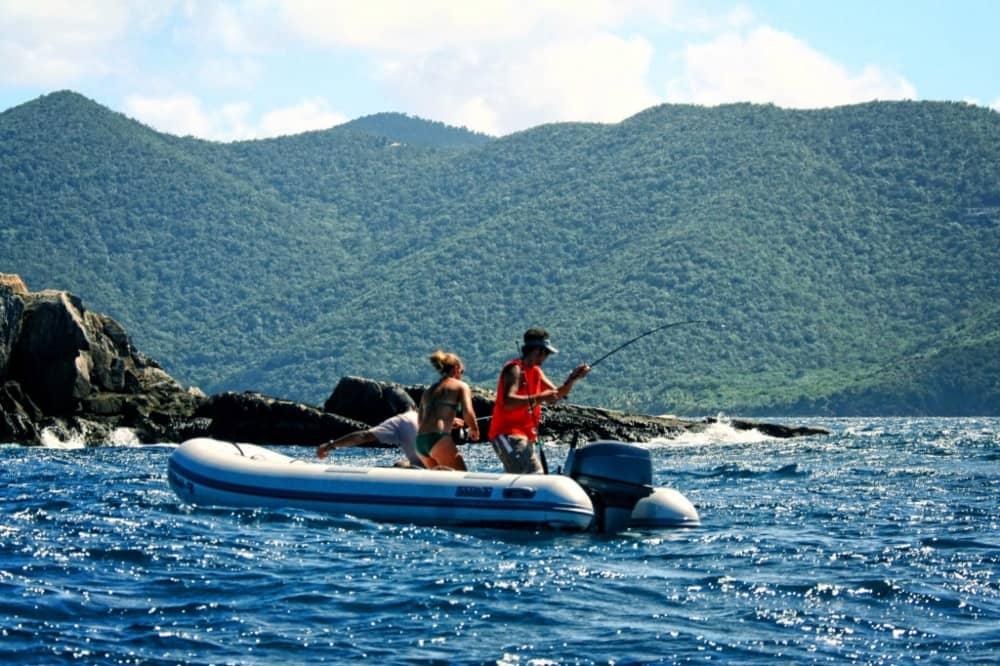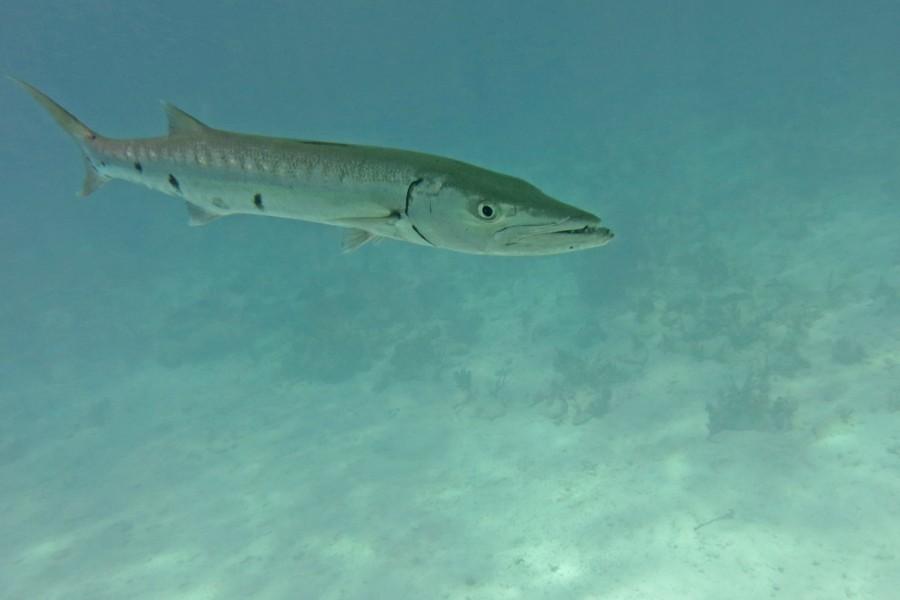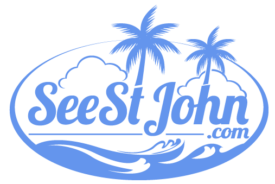
Sport fishing in the Virgin Islands can be broken down into three major categories: shoreline fishing, inshore fishing, and offshore bluewater fishing.
The first category, shoreline fishing, includes fishing from beaches, docks, and rocky outcroppings, as well as lagoons and shallow water flats. You can fish in the traditional native manner using hand lines or with a rod and reel. Bonefish, jacks, snappers, small sharks, tarpon, and barracudas can be caught in shallow flats and lagoons. You can fish for snapper and other reef fish from the rocks or cast out from the beach for jacks, blue runners, Spanish mackerel, and permit.
The second category, inshore fishing, includes bottom fishing and trolling. Using rod and reel or hand line, bottom fishing off of the coral reefs can bring in snapper, parrotfish, rock hind, grunts, and blue tang. Spanish mackerel, kingfish, barracuda, and amberjacks can be caught trolling around reefs, rocky cays, and jutting headlands.
Trolling around reefs, rocky cays, and jutting headlands can often yield Spanish mackerel, kingfish, barracuda, and jacks.
Be aware that some fish in Virgin Islands waters may harbor ciguatera, a type of fish poisoning that though rarely fatal, can make you really sick. Certain species, such as barracudas and amberjacks, are more likely to harbor the poison than other species, and larger ones will be more likely than smaller ones. Check with local fishermen to help identify suspect species.
Bluewater offshore fishing generally takes place along the north or south drops where water depth descends sharply from about 80 to 120 feet to 600 to 1800 feet. This is where the serious sport fisherman can try their hand against the famed blue marlin, sailfish, tuna, wahoo, bonito, and dolphin (mahi-mahi).

Fishing Regulations
It’s illegal to take, kill, molest, harass or remove turtles or turtle eggs. All species are protected by the Federal Endangered Species Act of 1973. It is illegal to remove, injure, break or destroy any living coral. It is illegal to spearfish for lobsters in all Territorial waters. It is illegal to possess or harvest Goliath Grouper, also called Jewfish. It is illegal to possess or harvest Nassau Grouper. It is illegal to possess or harvest Foureye, Banded, and Longsnout Butterflyfishes in Federal waters. It is illegal to possess or harvest seahorses in Federal waters.
In National Park waters, fishing is allowed outside of swim areas, but not in Trunk Bay and Jumbie Bay on St. John.
It is illegal to use or possess spearfishing equipment anywhere within National Park boundaries.
Fishing is prohibited at the following locations/times:
Between 8 am and 5 pm at NPS Red Hook Dock and NPS Cruz Bay Finger Pier and bulkhead and Within all designated boat exclusion areas.

Whelks
The shell must be greater than 2-7/16″ in diameter. Must land whole in shell.
Limit in National Park waters – 1 gal. per fisher per day Closed season April 1 – September 30
Conch
Minimum size 9″ shell length from the spire to the distal end, or 3/8″ lip thickness. Must land whole in shell. Territorial Waters – 6 per day per fisher, not to exceed 24 per boat per day. Federal Waters – 3 per day per fisher, not to exceed 12 per boat. No use of hookah gear. National Park Waters – 2 per fisher per day. Closed season July 1 – Sept 30.
Spiny Lobster
Carapace must be greater than 3.5 inches in length. Must land whole. No harvest of females with eggs. No spear fishing, hooks, or gigs. National Park Waters – 2 per fisher per day.
Yellowtail Snapper
12″ total length
Blue Marlin
99″ Lower Jaw Fork Length. Rod and reel only. Territorial Waters – No Commercial Harvest; no sale.
White Marlin
66″ Lower Jaw Fork Length. Rod and reel only. Territorial Waters – No Commercial Harvest; no sale.
Sailfish
63″ Lower Jaw Fork Length. Rod and reel only.
Territorial Waters extend from shore to 3 miles offshore. Federal Waters extend from 3-200 nautical miles offshore
Additional Remarks
Lobster is to be captured only by hand, snare, or trap. There is no sale of undersized conch or conch shells. No person is permitted to retain, remove, possess, or injure any conch that is less than nine inches in length or less than 3/8 inch lip thickness in any location.
All conch landed in the Regulatory Area or coastal waters must be alive and intact (in shell) when brought to the island on which conch is first sold or consumed (taking conch to offshore cays and islands for purpose of removing from shell is prohibited).
No disposal of shell at sea before landing. There are various Marine Reserves around the Virgin Islands in which fishing is prohibited. Contact the Division of Environmental Enforcement for an up-to-date list.
A major effort has recently been formed toward tag and release. Don t take more fish than you can use. Respect and appreciate the ocean. Follow USVI Fishing Regulations and Good Fishing!
Note: Information for this section was gathered from the U.S. Virgin Islands Commercial & Recreational Fishers’ Information Booklet published by the Division of Fish and Wildlife DPNR and the Division of Environmental Enforcement, dated July 2003.
NPS – Fishing with a hand-held rod and line or hand line is permitted, with the exception of boat exclusion zones. Possession or use of spearfishing equipment is prohibited.
